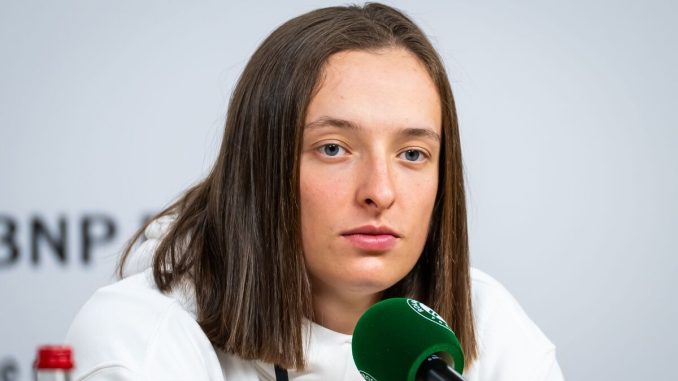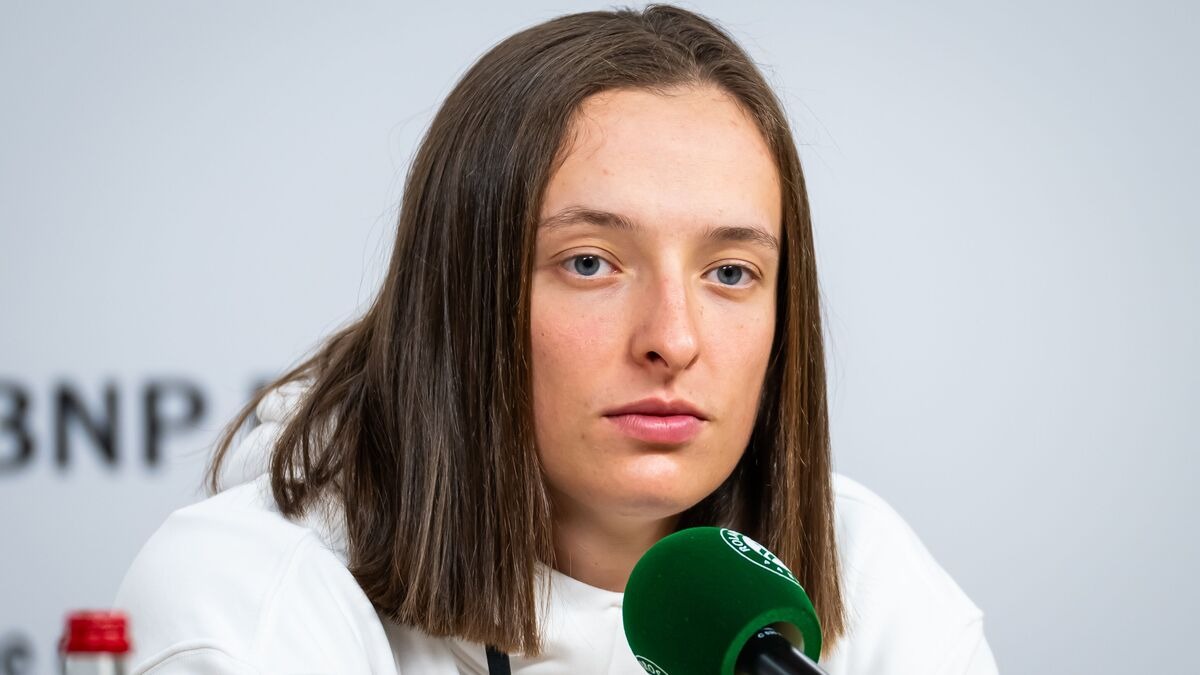
Iga Swiatek ‘Doesn’t Care’ About Controversial French Open Issue Her Rivals Are Blasting

Iga Swiatek, the reigning French Open champion and world No. 1, has recently made headlines not only for her outstanding performances on the court but also for her candid stance on a controversial issue that has sparked debate among her rivals at the French Open.
While many players have voiced their concerns and criticisms, Swiatek has taken a different approach, indicating that she “doesn’t care” about the issue that has been at the center of much discussion.
#### The Controversial Issue
**What is the Controversy?**
– **Night Sessions and Scheduling:** The primary controversy revolves around the scheduling of night sessions at the French Open. Players have expressed concerns about the late match times, which can extend past midnight, affecting their recovery and performance in subsequent matches.
– **Court Conditions:** Another aspect of the controversy includes the conditions of the courts during night sessions. The cooler temperatures and different humidity levels can alter the playing conditions, impacting the bounce and speed of the ball, and thereby affecting the players’ strategies and performance.
– **Viewer Experience vs. Player Well-being:** The scheduling is also seen as prioritizing viewer experience and broadcasting benefits over the well-being of the players, leading to criticisms about the tournament’s management.
**Player Reactions:**
– **Criticism from Rivals:** Several players, including top seeds and former champions, have openly criticized the night sessions.
They argue that the late finishes and altered playing conditions compromise their ability to compete at their best level.
– **Calls for Change:** These players have called for changes to the scheduling and have sought more consideration for player welfare in the planning of match times.
#### Iga Swiatek’s Stance
**Swiatek’s Response:**
– **Dismissive of the Controversy:** In contrast to her rivals, Swiatek has downplayed the issue, stating that she “doesn’t care” about the night sessions and the related scheduling controversies. Her stance suggests a focus on her performance and adaptability rather than external factors.
– **Adaptability and Focus:** Swiatek’s response highlights her adaptability and mental fortitude. By not allowing the controversy to distract her, she maintains a laser focus on her game and preparation.
**Implications of Her Stance:**
– **Mental Toughness:** Swiatek’s ability to brush off the scheduling concerns demonstrates her mental toughness and resilience. This mindset is a key component of her success and dominance on the court.
– **Leadership by Example:** By not engaging in the controversy, Swiatek sets an example of professionalism and focus for other players. Her approach suggests that she prioritizes controlling what she can and not getting bogged down by external issues.
#### The Broader Context
**Impact on Players:**
– **Performance and Recovery:** The late-night scheduling can impact players’ performance and recovery. Playing late into the night can disrupt sleep patterns and recovery processes, affecting their readiness for subsequent matches.
– **Injury Risks:** Extended play under cooler night conditions could also increase the risk of injuries, as muscles and joints might be more susceptible to strain and fatigue.
**Tournament Management:**
– **Balancing Act:** The French Open organizers face the challenge of balancing the interests of broadcasters, fans, and players. Night sessions attract a larger TV audience and can boost revenues, but they need to consider the well-being of the players to ensure high-quality competition.
– **Potential Revisions:** The ongoing debate might prompt the tournament organizers to review and possibly revise their scheduling policies in future editions, seeking a compromise that addresses the concerns of all stakeholders.
**Comparative Analysis:**
– **Other Grand Slams:** Comparatively, other Grand Slam tournaments also have night sessions, but the approach to scheduling varies. The Australian Open, for instance, has faced similar criticisms, while Wimbledon’s traditions limit late finishes.
#### Conclusion
Iga Swiatek’s dismissal of the controversy surrounding night sessions at the French Open showcases her mental fortitude and singular focus on her game.
While many of her rivals have voiced legitimate concerns about the impact of late match times on performance and recovery, Swiatek’s ability to remain unaffected underscores her adaptability and resilience.
This stance not only sets her apart as a leader in the sport but also highlights the broader issues faced by tournament organizers in balancing the needs of players, broadcasters, and fans.
As the debate continues, it remains to be seen whether the French Open will adjust its scheduling practices to better accommodate player welfare while maintaining the excitement and accessibility of night matches for a global audience.
Leave a Reply